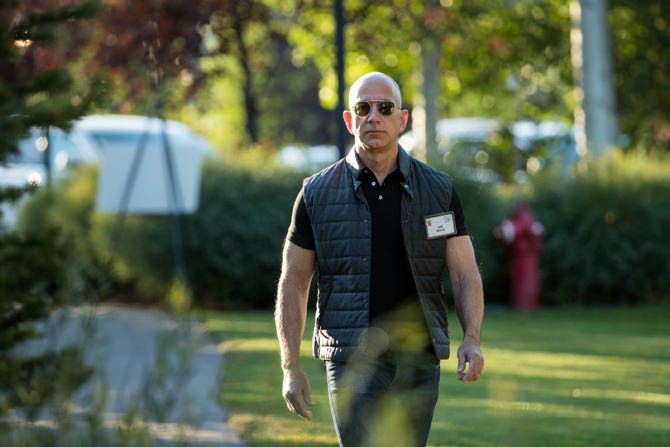
|
Day 19 Wise Words: Jeff Bezos on Making Decisions Like a Boss |
Jeff Bezos just became the richest person of all time, eclipsing the record previously held by Microsoft founder Bill Gates. And he doesn't plan on stopping anytime soon. Since founding Amazon in 1994, Bezos has learned a lot while completely changing the way we all buy on the internet. The legendary entrepreneur is also an avid investor, the owner of the Washington Post and head of Blue Origin, a private space travel business that intends to take tourists to space. Who better to glean insight on the importance of imperfections, intuition and focus? Here are few brilliant lessons from the man himself.

Action Above All Else
"If you decide that you're going to do only the things you know are going to work, you're going to leave a lot of opportunity on the table. If you double the number of experiments you do per year you're going to double your inventiveness. We are willing to go down a bunch of dark passageways ... and occasionally we find something that really works."
Minimize Your Regrets
When deciding whether to quit his cushy hedge fund job (and give up a hefty annual bonus) in order to start a new web-based company at a moment when the internet's future was still uncertain, Bezos realized that he lacked an analytical framework for making big life decisions. So he made one up: "I wanted to project myself forward to age 80 and say, 'Okay, now I'm looking back on my life. I want to have minimized the number of regrets I have.' I knew that if I failed I wouldn't regret that, but I knew the one thing I might regret is not trying."
Focus on Your Goals, Not Your Competitors
"To get ahead of anything, you have to think for yourself. Most big technology companies are too competitor focused. They see what others are doing, and then work to fast follow. Our goal is to be earth's most customer-centric company, so we have focused like a laser on customer experience, not what peers are doing."
But Don't Ignore Your Peers
Being unique is what will get you noticed and push you ahead of the pack. But it's also smart to put a unique twist on something that's already been proven to work. "We will keep an eye our competitors, learn from them, see the things that they were doing for customers and copy those things as much as we can."
Good Ideas Don't Have to Be Perfect
"Most decisions should probably be made with somewhere around 70% of the information you wish you had. If you wait for 90%, in most cases, you're probably being too slow. Plus, either way, you need to be good at quickly recognizing and correcting bad decisions."
Be Flexibly Stubborn
"The thing about innovating is you have to be both stubborn and flexible, more or less simultaneously. If you're not stubborn, you'll give up on experiments too soon. And if you're not flexible, you'll pound your head against the wall and you won't see a different solution to a problem you're trying to solve."


